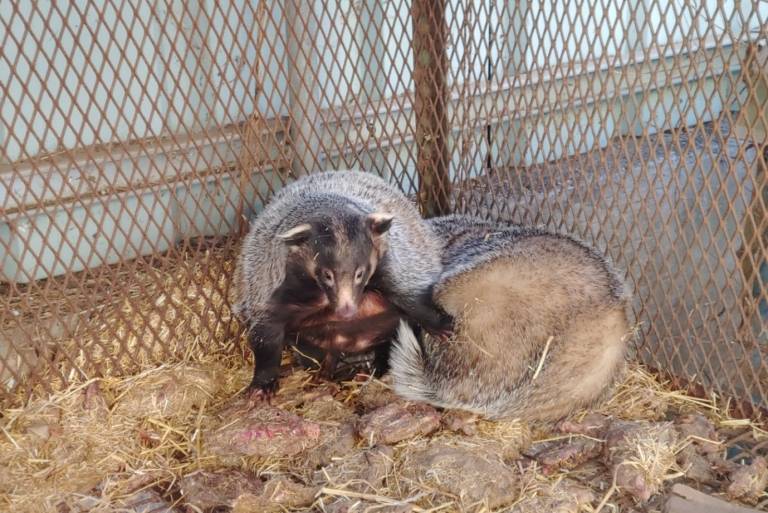Research shines light on overlooked badger trade in South Korea
2 May 2023
New study by PhD student Joshua Elves-Powell explores the emergence and persistence of badger farming in South Korea, along with its potential consequences.

New research by UCL Geography PhD student, Joshua Elves-Powell, published in Journal of Asia-Pacific Biodiversity with colleagues from ZSL’s Institute of Zoology and Seoul National University, investigates the badger trade in South Korea and in particular the overlooked practice of badger farming, which was first legally recognised in 2001.
Josh explains, “A key part of the issue is that badger trade worldwide – and in South Korea specifically – is very poorly studied or regulated. For example, there is a lack of sufficient biosecurity protocols on badger farms to prevent the spread of disease to captive or wild animal populations, or even to humans.”
Co-author, Professor Emeritus Hang Lee of the College of Veterinary Medicine, Seoul National University added, “The risk of disease transmission between captive animals and humans on wildlife farms is exemplified by the outbreak of SARS-CoV-2 (Covid-19) on mink farms in Europe in 2020, mink being part of the same family – mustelids - as badgers.”
The study details how badger farming was originally established to supply demand for badger meat as a food resource and badger body parts for traditional Korean medicine, including as a potential substitute for bear bile, but that a wide range of new badger-derived products have since been marketed to consumers, from nutritional supplements to badger-derived cosmetics.
Josh says, “In recent years, there has been considerable focus on bear farming, a practice which South Korea has just decided to end by 2026. However, badger farming appears to present many of the same risks, including potential threats to wild badger populations and poor welfare conditions of captive animals. Again, the risks here are potentially increased by the fact that the industry is poorly regulated and that we do not have good scientific data on Asian badger (Meles leucurus) populations in South Korea, which reduces the likelihood of any detrimental impacts on wild badger populations being noticed.”

Josh speaks about linkages between the faming of bears and badgers in South Korea at the Global Exploration Summit (GLEX) in 2022. Photo credit: GLEX 2022
Josh concludes, “Until now, the focus in South Korea has exclusively been on bear farms. We hope that this study will shine a light on a linked wildlife trade and lead to policy that looks more holistically at wildlife farming.”
Josh is supervised by Professor Jan Axmacher at UCL Geography and Professor Sarah Durant at ZSL’s Institute of Zoology. He is funded by the London NERC DTP.
You can read the article in Journal of Asia-Pacific Biodiversity.
 Close
Close

